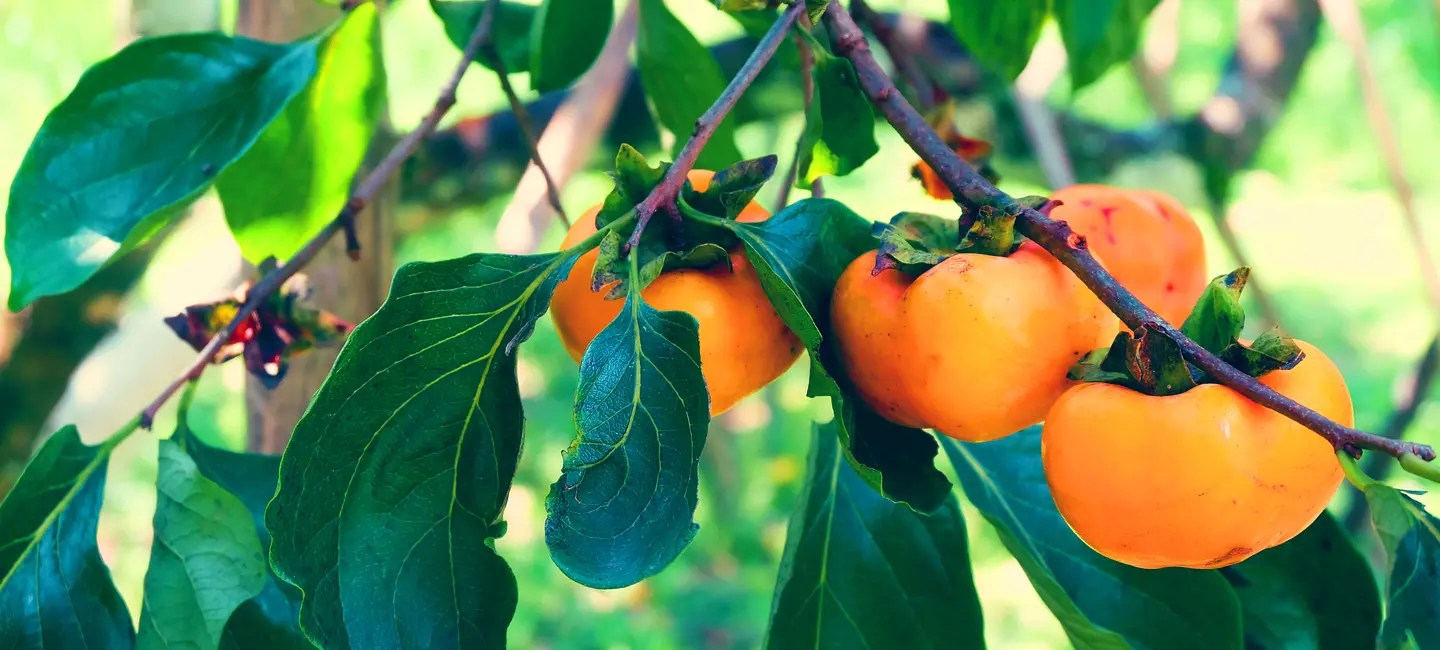
Japanese persimmon is a tree. People eat the fruit. The fruit and leaf are used for medicine.
Japanese persimmon is used for high blood pressure, fluid retention, constipation, and other conditions, but there is no good scientific evidence to support many of these uses.
Is It Effective?
NatMed Pro rates effectiveness based on scientific evidence according to the following scale: Effective, Likely Effective, Possibly Effective, Possibly Ineffective, Likely Ineffective, Ineffective, and Insufficient Evidence to Rate.
- High levels of cholesterol or other fats (lipids) in the blood (hyperlipidemia). Early research shows that eating fiber from unripe Japanese persimmon fruit may lower lipid levels in the blood.
- Prediabetes. Early research in people with prediabetes shows that taking Japanese persimmon leaf extract might lower blood sugar.
- Constipation.
- Fluid retention.
- Hiccough.
- High blood pressure.
- Improving blood flow.
- Reducing body temperature.
- Stroke.
- Other conditions.
More evidence is needed to rate Japanese persimmon for these uses.
Is it Safe?
Japanese persimmon contains chemicals that might lower blood pressure. There isn't enough information to know how Japanese persimmon works for other conditions.
When taken by mouth: Japanese persimmon is POSSIBLY SAFE when taken as a medicine. It has been used in clinical research without reported adverse effects. The fruit might cause allergic reactions in some people, but this is uncommon. Eating the fruit in very large amounts might cause blockage of the intestines.
Special Precautions & Warnings:
Pregnancy and breast-feeding: Not enough is known about the use of Japanese persimmon during pregnancy and breast-feeding. Stay on the safe side and avoid use.
Bleeding disorders: Taking Japanese persimmon might slow blood clotting. This might increase the risk of bruising and bleeding in people with bleeding disorders.
Low blood pressure: Japanese persimmon might lower blood pressure. There is some concern that it might make low blood pressure worse or interfere with treatment intended to raise low blood pressure.
Surgery: Japanese persimmon might lower blood pressure or slow blood clotting. This might interfere with blood pressure control or increase the chance of excessive bleeding during and after surgery. Stop using Japanese persimmon at least 2 weeks before a scheduled surgery.
Medications for high blood pressure (Antihypertensive drugs)
Interaction Rating=Moderate Be cautious with this combination.
Japanese persimmon seems to decrease blood pressure. Taking Japanese persimmon along with medications for high blood pressure might cause your blood pressure to go too low.
Some medications for high blood pressure include captopril (Capoten), enalapril (Vasotec), losartan (Cozaar), valsartan (Diovan), diltiazem (Cardizem), amlodipine (Norvasc), hydrochlorothiazide (HydroDiuril), furosemide (Lasix), and many others.
Medications that slow blood clotting (Anticoagulant / Antiplatelet drugs)
Interaction Rating=Moderate Be cautious with this combination.
Japanese persimmon might slow blood clotting. Taking Japanese persimmon along with medications that also slow clotting might increase the chances of bruising and bleeding.
Some medications that slow blood clotting include aspirin, clopidogrel (Plavix), dalteparin (Fragmin), enoxaparin (Lovenox), heparin, indomethacin (Indocin), ticlopidine (Ticlid), warfarin (Coumadin), and others.
Herbs and Supplements That Might Lower Blood Pressure: Japanese persimmon might lower blood pressure. Using it along with other products that have this same effect might cause blood pressure to drop too low. Avoid this combination. Some products that might lower blood pressure include andrographis, casein peptides, cat's claw, coenzyme Q-10, fish oil, L-arginine, lycium, stinging nettle, theanine, and others.
Herbs and supplements that might slow blood clotting: Japanese persimmon might slow blood clotting. Taking Japanese persimmon along with herbs that also slow clotting might increase the chances of bruising and bleeding. These herbs include angelica, clove, danshen, garlic, ginger, ginkgo, Panax ginseng, red clover, willow, and others.
There are no known interactions with foods.
The appropriate dose of Japanese persimmon depends on several factors such as the user's age, health, and several other conditions. At this time there is not enough scientific information to determine an appropriate range of doses for Japanese persimmon. Keep in mind that natural products are not always necessarily safe and dosages can be important. Be sure to follow relevant directions on product labels and consult your pharmacist or physician or other healthcare professional before using.
Caqui, Chinese Persimmon, Chinese Plum, Coing de Chine, Diospyros chinensis, Diospyros kaki, Diospyroskaki, Dried Persimmon, Figuier Caque, Fuyu, Hachiya, Hachiya Persimmon, Hanagosho, Jiro, Kaki, Kaki du Japon, Kaki Persimmon, Korean Persimmon, Oriental Persimmon, Persimmon, Persimmon Fruit, Persimmon Japonais, Persimmon Juice, Persimmon Punch, Plaqueminier, Plaqueminier de Chine, Plaqueminier du Japon, Plaqueminier Kaki, Sharon Fruit.
Information on this website is for informational use only and is not intended to replace professional medical advice, diagnosis, or treatment. While evidence-based, it is not guaranteed to be error-free and is not intended to meet any particular user’s needs or requirements or to cover all possible uses, safety concerns, interactions, outcomes, or adverse effects. Always check with your doctor or other medical professional before making healthcare decisions (including taking any medication) and do not delay or disregard seeking medical advice or treatment based on any information displayed on this website.
© TRC Healthcare 2024. All rights reserved. Use and/or distribution is permitted only pursuant to a valid license or other permission from TRC Healthcare.
